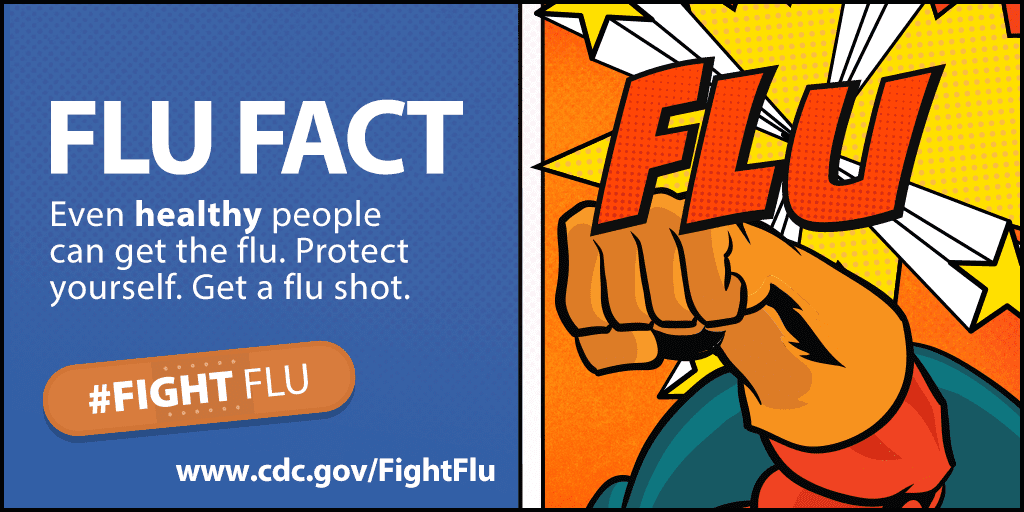Healthy Habits Can Stop Germs
The single best way to prevent seasonal flu is to get vaccinated each year, but good health habits like covering your cough and washing your hands often can help stop the spread of germs and prevent respiratory illnesses like the flu. There also are flu antiviral drugs that can be used to treat and prevent flu. The tips and resources below will help you learn about steps you can take to protect yourself and others from flu and help stop the spread of germs.
1. Get Vaccinated
The seasonal flu vaccine protects against the influenza viruses that research indicates will be most common during the upcoming season. There are several flu vaccine options for the 2018-2019 flu season. If you haven’t received your flu shot this season, visit one of our Healthy Connections clinics to make an appointment.
2. Avoid close contact.
Avoid close contact with people who are sick. When you are sick, keep your distance from others to protect them from getting sick too.
3. Stay home when you are sick.
If possible, stay home from work, school, and errands when you are sick. This will help prevent spreading your illness to others.
4. Cover your mouth and nose.
Cover your mouth and nose with a tissue when coughing or sneezing. It may prevent those around you from getting sick. Flu and other serious respiratory illnesses, like
5. Clean your hands.
Washing your hands often will help protect you from germs. If soap and water are not available, use an alcohol-based hand rub.
- Handwashing: Clean Hands Save Lives
Tips on hand washing and using alcohol-based hand sanitizers - It’s a SNAP Toolkit: Handwashing
Hand washing resources from the It’s A SNAP program, aimed at preventing school absenteeism by promoting clean hands. From the School Network for Absenteeism Prevention, a collaborative project of the CDC, the U.S. Department of Health and Human Services and the American Cleaning Institute.
6. Avoid touching your eyes, nose or mouth.
Germs are often spread when a person touches something that is contaminated with germs and then touches his or her eyes, nose, or mouth.
7. Practice other good health habits.
Clean and disinfect frequently touched surfaces at home, work or school, especially when someone is ill. Get plenty of sleep, be physically active, manage your stress, drink plenty of fluids, and eat nutritious food.






